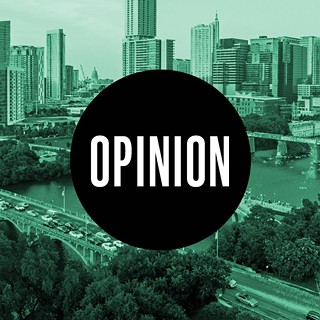Opinion: It’s Time to End the Oppressive Policing of Muslim Youth
An organizer argues against the targeted surveillance and aggressive policing tactics being used against Muslim youth, along with their Black and brown allies
By Ramish Nadeem, Fri., Feb. 19, 2021
As the nation continues to reel from the Capitol siege, I recall one particular memory from last summer's wave of protests in the aftermath of George Floyd's killing. I was leading maghrib namaz (the South Asian term for the evening Islamic prayer or salat) with a small group of Muslim protesters when we were suddenly surrounded by armed law enforcment. They were brought in from hundreds of miles away, trained to occupy, surveil, control, and kill local populations, and saw our dancing, protesting, and peaceful organizing as threats.
Nationwide, our dance and prayer were met with bullets and flash grenades. I witnessed police arrest and brutalize friends across the country, while the state deployed tools of war against Black and brown young people assembling peacefully in their own cities.
Cognitive dissonance kicked in as I watched a largely white crowd of far-right, fascist protesters storm the U.S. Capitol buildings (facilitated by law enforcement and gently escorted out). Those like me who protested for Black lives felt viscerally the harm that racialized state violence and surveillance bring to Black, brown, and Muslim communities. And we knew that the consequences ultimately wouldn't fall on white protesters, but on us once again.
However, surveillance and oppressive policing don't always look as starkly and directly violent. During the Obama administration, Countering Violent Extremism (CVE) (www.dhs.gov/cve) programs were proposed as solutions to violent ideologies. To many liberals and progressives, they seemed like a good idea at the time. CVE and its successor, TVTP (Targeted Violence and Terrorism Prevention) (www.dhs.gov/tvtp), claim to prevent "ideologically motivated violence to further political goals". In reality, they perpetuate a long tradition of law enforcement surveilling and undermining Black, Muslim, Indigenous, and people of color (BIPOC) communities. In CVE-style programs, the Department of Homeland Security, Federal Bureau of Investigation, Department of Justice, and the National Counterterrorism Center target Muslim people – particularly those who are Black and brown. These efforts collaborate in insidious ways with community organizations to expand surveillance (hospitals, universities, police departments, and city governments for example). Too frequently, whenever surveillance, security, and policing have expanded the result has often been increased violence and harm against marginalized people.
While we recognize the very real victories – like rescinding of the Muslim Ban – and the renewed space to win legislative and administrative victories for the rights of Muslim youth, we should remain vigilant about the different forms that state violence and policing can take under a Democratic administration. After an attempted coup and waves of white supremacist violence, it is easy to look at CVE and TVTP programs as models for combating extremism, or to advocate for further expanding the definition of terrorism and the funding that comes with it. However, we must listen closely to those directly impacted when it comes to the systems and policies that disproportionately target them.
Young Muslims have foretold repeatedly that expanded funding of counterterrorism programs like CVE and TVTP won't prevent violence in their communities. They have called attention to the many ways that overpolicing violates their civil and human rights. The fallout from a far-right coup that found supporters in the highest offices of this nation cannot be allowed to expand state surveillance and disruption of young Muslim communities.
During last month's Advocates for Youth's #MuslimAnd Week of Action, hundreds of Muslim youth around the country amplified the problems with CVE, while celebrating our many identities and communities. Now, policy leaders must heed their calls and prioritize investments in the joy, resilience, and community of Muslim Black and brown young people, rather than in expanded policing, surveillance, and state-sanctioned violence.
Ramish Nadeem serves as Muslim and international youth advocacy manager at Advocates for Youth. He is a queer immigrant Muslim organizer and Georgetown, Texas, native who works with groups like Muslim Solidarity ATX. Ramish is also a founder and board member of Muslim Space, and a founder of Muslims and Allies.
The Chronicle welcomes submissions of opinion pieces on any topic from the community. Find guidelines and tips at austinchronicle.com/contact/opinion.
Got something to say? The Chronicle welcomes opinion pieces on any topic from the community. Submit yours now at austinchronicle.com/opinion.









